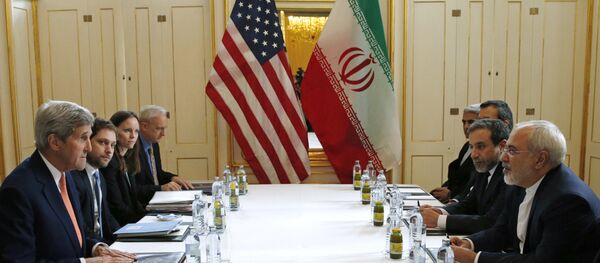France's Foreign Minister said on Monday in Abu Dhabi that the EU "is going to compare the systems (of sanctions in place) in the EU and US, and then decide if new measures are necessary."
"It did not last very long before the EU followed the US, at least conceptually – and reviewed new sanctions against Iran," German Economic News (DWN) reported.
On Sunday the US Treasury imposed sanctions against 11 entities and individuals it deems to have helped Tehran procure goods for its ballistic missile program. The sanctions order US banks to freeze any assets the firms or individuals hold inside the US financial system, and prohibit US or foreign nationals from conducting business with them.
Iran has condemned the new sanctions as a US "propaganda stunt" to pacify domestic critics of the nuclear agreement and the recent prisoner swap deal, which concluded with the release of four US citizens and seven Iranians on Saturday.
DWN characterized the new sanctions against Iran as the latest example of the US misusing its hegemony over the world financial system.
"Almost all international payments paths lead to the USA, because the dollar is the world currency. At the moment, the Americans have the opportunity to penalize every company with sanctions."
"In the case of European banks, the US administration has already earned over one billion in extra income this way," DWN reported.
The US government condemned Iran after it carried out a test of its Emad medium-range guided ballistic missile in October, claiming that the missile is capable of carrying a nuclear warhead.
On Monday, Iran's Foreign Ministry spokesman Hossein Jaber Ansari said the US sanctions against the ballistic missile program "have no legal or moral legitimacy" and that Tehran will continue to test its missiles.
"We will respond to such propaganda stunts and disruptive measures by more robustly pursuing our lawful missile program and promoting our defense capabilities and national security."
He highlighted the hypocrisy of the new sanctions against Iran, which are being implemented because its ballistic missile program, according to the US Treasury, "poses a significant threat to regional and global security."
"America sells tens of billions of dollars of weaponry each year to countries in the region," Ansari pointed out.
"These weapons are used in war crimes against Palestinian, Lebanese and most recently Yemeni citizens."




